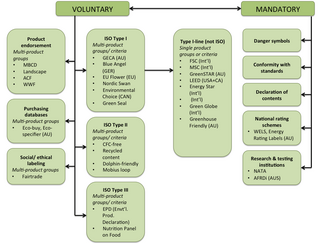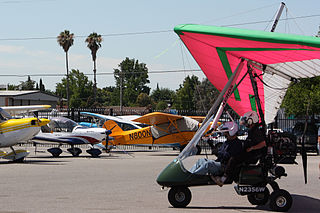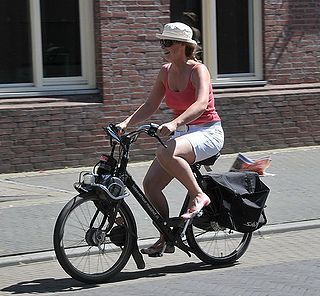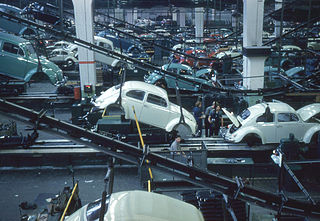Related Research Articles

A vehicle identification number (VIN) (also called a chassis number or frame number) is a unique code, including a serial number, used by the automotive industry to identify individual motor vehicles, towed vehicles, motorcycles, scooters and mopeds, as defined by the International Organization for Standardization in ISO 3779 (content and structure) and ISO 4030 (location and attachment).
The model year is a method of describing the version of a product which has been produced over multiple years. The model year may or may not be the same as the calendar year in which the product was manufactured.

The Dominican Republic–Central America–United States Free Trade Agreement is a free trade agreement. Originally, the agreement encompassed the United States and the Central American countries of Costa Rica, El Salvador, Guatemala, Honduras, and Nicaragua, and was called CAFTA. In 2004, the Dominican Republic joined the negotiations, and the agreement was renamed CAFTA-DR.
The National Highway Traffic Safety Administration is an agency of the U.S. federal government, part of the Department of Transportation, focused on transportation safety in the United States.

In France, the appellation d'origine contrôlée (AOC) is a label that identifies an agricultural product whose stages of production and processing are carried out in a defined geographical area – the terroir – and using recognized and traditional know-how. The specificity of an AOC product is determined by the combination of a physical and biological environment with established production techniques transmitted within a human community that, together, give the product its distinctive qualities. These crucial technical and geographic factors are set forth in standards for each product, including wines, cheeses and meats. Other countries and the European Union have similar labeling systems. The European Union's protected designation of origin system has now harmonized the protection of all geographical indications and their registration. When labelling wine however, producers may still use recognized traditional terms like AOC, and are not required to display the PDO and PGI logos or terms, mostly for aesthetic purposes.

A knock-down kit is a collection of parts required to assemble a product. The parts are typically manufactured in one country or region, then exported to another country or region for final assembly.

Ecolabels and Green Stickers are labeling systems for food and consumer products. The use of ecolabels is voluntary, whereas green stickers are mandated by law; for example, in North America major appliances and automobiles use Energy Star. They are a form of sustainability measurement directed at consumers, intended to make it easy to take environmental concerns into account when shopping. Some labels quantify pollution or energy consumption by way of index scores or units of measurement, while others assert compliance with a set of practices or minimum requirements for sustainability or reduction of harm to the environment. Many ecolabels are focused on minimising the negative ecological impacts of primary production or resource extraction in a given sector or commodity through a set of good practices that are captured in a sustainability standard. Through a verification process, usually referred to as "certification", a farm, forest, fishery, or mine can show that it complies with a standard and earn the right to sell its products as certified through the supply chain, often resulting in a consumer-facing ecolabel.

A light-sport aircraft (LSA), or light sport aircraft, is a fairly new category of small, lightweight aircraft that are simple to fly. LSAs tend to be heavier and more sophisticated than ultralight aircraft, but LSA restrictions on weight and performance separates the category from established GA aircraft. There is no standard worldwide description of an LSA.

A motorized bicycle is a bicycle with an attached motor or engine and transmission used either to power the vehicle unassisted, or to assist with pedalling. Since it sometimes retains both pedals and a discrete connected drive for rider-powered propulsion, the motorized bicycle is in technical terms a true bicycle, albeit a power-assisted one. Typically they are incapable of speeds above 52 km/h (32 mph), however in recent years larger motors have been built, allowing bikes to reach speeds of upwards of 72 km/h.
Type approval or certificate of conformity is granted to a product that meets a minimum set of regulatory, technical and safety requirements. Generally, type approval is required before a product is allowed to be sold in a particular country, so the requirements for a given product will vary around the world. Processes and certifications known as 'type approval' in English are generally called 'homologation', or some cognate expression, in other European languages.

Motor vehicle registration is the registration of a motor vehicle with a government authority, either compulsory or otherwise. The purpose of motor vehicle registration is to establish a link between a vehicle and an owner or user of the vehicle. This link might be used for taxation or crime detection purposes. While almost all motor vehicles are uniquely identified by a vehicle identification number, only registered vehicles display a vehicle registration plate and carry a vehicle registration certificate. Motor vehicle registration is different from motor vehicle licensing and roadworthiness certification.

Since 2009, the United States is home to the second largest passenger vehicle market of any country in the world, second to China. Overall, there were an estimated 263.6 million registered vehicles in the United States in 2015, most of which were passenger vehicles. This number, along with the average age of vehicles, has increased steadily since 1960. The United States is also home to three large vehicle manufacturers: General Motors, Ford Motor Company, and Chrysler, which have historically been referred to as the "Big Three".

Production vehicles or production cars are mass-produced models of automobiles offered for sale to the public, and able to be legally driven on public roads. Legislation and other industrial rules further define the production vehicle within particular countries or uses. There is no single fixed global definition of the term.

A Certificate of Origin or Declaration of Origin is a document widely used in international trade transactions which attests that the product listed therein has met certain criteria to be considered as originating in a particular country. A certificate of origin / declaration of origin is generally prepared and completed by the exporter or the manufacturer, and may be subject to official certification by an authorized third party. It is often submitted to a customs authority of the importing country to justify the product's eligibility for entry and/or its entitlement to preferential treatment. Guidelines for issuance of Certificates of Origin by chambers of commerce globally are issued by the International Chamber of Commerce.
The EUR.1 movement certificate is a form used in international commodity traffic. The EUR.1 is most importantly recognized as a certificate of origin in the external trade in legal sense, especially within the framework of several bi- and multilateral agreements of the Pan-European preference system.

Rules of origin are the rules to attribute a country of origin to a product in order to determine its "economic nationality". The need to establish rules of origin stems from the fact that the implementation of trade policy measures, such as tariffs, quotas, trade remedies, in various cases, depends on the country of origin of the product at hand.
Country of origin labeling (COOL) is a requirement signed into American law under Title X of the Farm Security and Rural Investment Act of 2002, codified at 7 U.S.C. § 1638a as Notice of country of origin. This law had required retailers to provide country-of-origin labeling for fresh beef, pork, and lamb. The program exempted processed meats. The United States Congress passed an expansion of the COOL requirements on September 29, 2008, to include more food items such as fresh fruits, nuts and vegetables. Regulations were implemented on August 1, 2008, August 31, 2008, and May 24, 2013. The 2016 Consolidated Appropriations Act is the latest amendment to the Agricultural Marketing Act of 1946. This act forms the basis of the current COOL requirements.
Car ownership is the ownership of a car. Car ownership typically requires far fewer permits than driving that car on public roads.
The Australian Design Rules (ADRs) are Australia's national technical regulations for vehicle safety, theft resistance, and emissions. They are largely based on and actively harmonised with the UN vehicle and equipment regulations, though some of the technical prescriptions of the US National Highway Traffic Safety Administration regulations are accepted despite differing from the ECE prescriptions.

The Chicken Tax is a 25 percent tariff on light trucks imposed in 1964 by the United States under President Lyndon B. Johnson in response to tariffs placed by France and West Germany on importation of U.S. chicken. The period from 1961 to 1964 of tensions and negotiations surrounding the issue was known as the "Chicken War", taking place at the height of Cold War politics.
References
- 19 CFR §181.11